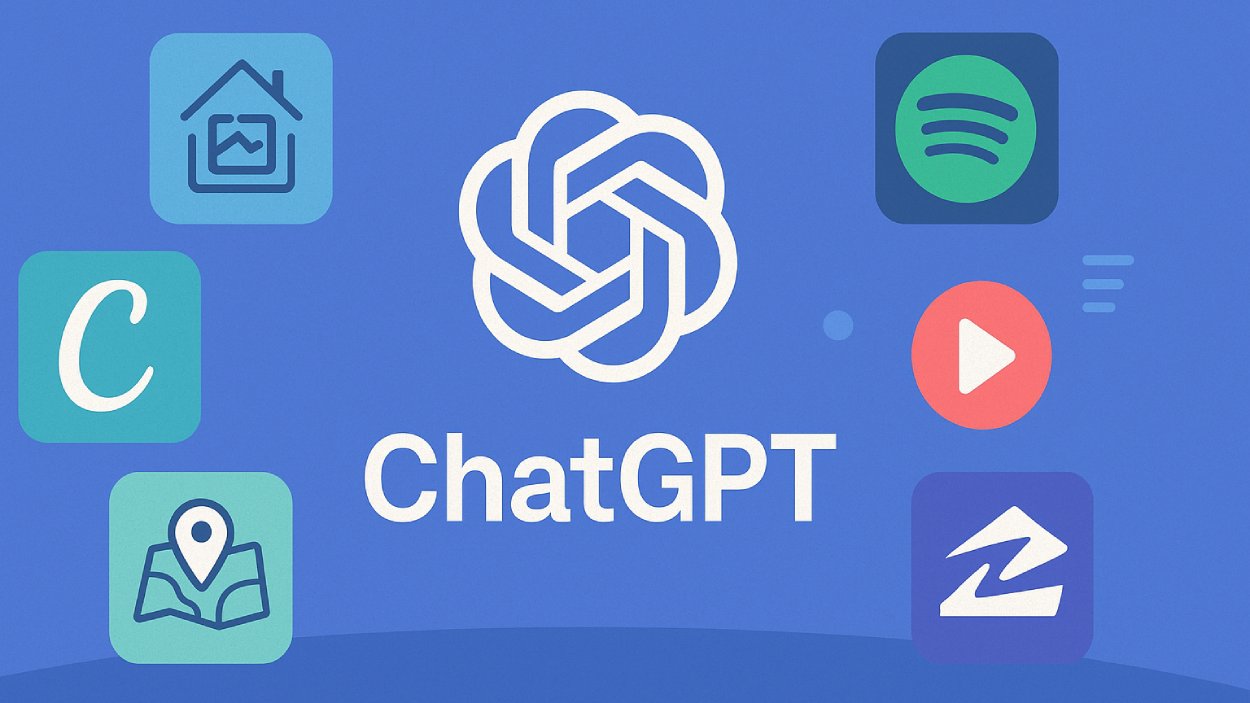In a move that reshapes how we interact with digital services, OpenAI today unveiled an Apps SDK that lets developers embed full-featured third party apps like Zillow, Canva, Spotify and more directly into ChatGPT. This transforms ChatGPT from a conversational AI into a platform where users can talk to apps without ever leaving the chat.
Quick Summary – TLDR:
- OpenAI launches preview version of Apps SDK, enabling third party apps to run natively within ChatGPT
- Early integrations include Booking.com, Canva, Coursera, Expedia, Figma, Spotify, and Zillow
- Users outside the EU can access the feature now across Free, Go, Plus, and Pro tiers
- Apps must meet strict privacy, safety, and design standards to be listed
What Happened?
At its DevDay 2025 developer conference, OpenAI cofounder and CEO Sam Altman introduced the Apps SDK, a toolkit for developers to build apps that function inside ChatGPT itself. Altman called it a shift toward “a new generation of apps that are interactive, adaptive and personalized, that you can chat with.”
You can now chat with apps in ChatGPT. pic.twitter.com/T9Owi3POim
— OpenAI (@OpenAI) October 6, 2025
The SDK is built atop the Model Context Protocol (MCP), enabling these apps to connect context, trigger actions, and render interactive UIs within ChatGPT’s chat stream.
In demos, OpenAI showed how users can ask Canva to generate designs from text prompts, or have Zillow show real estate listings on interactive maps, all seamlessly embedded in the chat window.
How the Integration Works?
You can summon an app by name or let ChatGPT suggest an app when it becomes relevant in the conversation.
The first time you call an app, ChatGPT asks for your permission to connect and clarifies what data will be shared.
Apps can appear inline as lightweight cards, expand into full screen for immersive UIs (maps, slides, menus), or use picture-in-picture modes (for video, quizzes). These modes are designed to preserve ChatGPT’s conversational flow while offering modern UI elements.
While interacting with an embedded app, ChatGPT models maintain awareness of what you are doing in that app, enabling commands like “explain what’s happening in that video” without re-specifying content.
Availability, Monetization & Developer Rules
The feature is available today in preview for ChatGPT users outside the European Union across Free, Go, Plus, and Pro tiers. Business, Enterprise, and Education users will get access later this year.
OpenAI plans to start accepting app submissions and monetization models later this year, including use of its Agentic Commerce Protocol (ACP) to enable in-ChatGPT payments.
Eligible apps can be listed in a searchable directory. Apps that meet higher design and functionality thresholds may gain featured placement in conversations.
Apps that violate policies, crash often, or misrepresent themselves risk removal.
Design guidelines enforce consistency with ChatGPT’s visual system, requiring accessibility, readability, and clarity. Apps can show brand logos and colors, but cannot use promotional content.
Implications & Challenges Ahead
With this move, OpenAI is pushing ChatGPT to become a conversational OS, a single interface where you can discover, run, and interact with multiple apps exactly when needed.
Industry analysts say this brings ChatGPT closer to being a runtime for services, letting users manage tasks without toggling between apps.
Developers now have access to over 800 million users, giving them unmatched reach.
However, tradeoffs exist: UI flexibility is limited, and OpenAI’s policies must be strictly followed. Developers also face potential competition from OpenAI itself or its partners.
Enterprise developers will be able to build internal apps using the same SDK, allowing teams to manage HR tools, dashboards, or workflows in a secure, role-based interface.
SQ Magazine Takeaway
For me, this is a milestone moment. OpenAI is not just enhancing ChatGPT. It is redefining what a conversational AI can be. The ability to embed apps inside dialogue means utility and discovery converge. Instead of bouncing between web pages or app screens, you can let what you need come to you, inside a chat.
That said, control and privacy will be big tests. Developers give up some freedom, and users must feel confident about how their data is handled. But it’s clear: this is a big step toward a future where apps are not downloaded, they’re just talked into existence.


































































